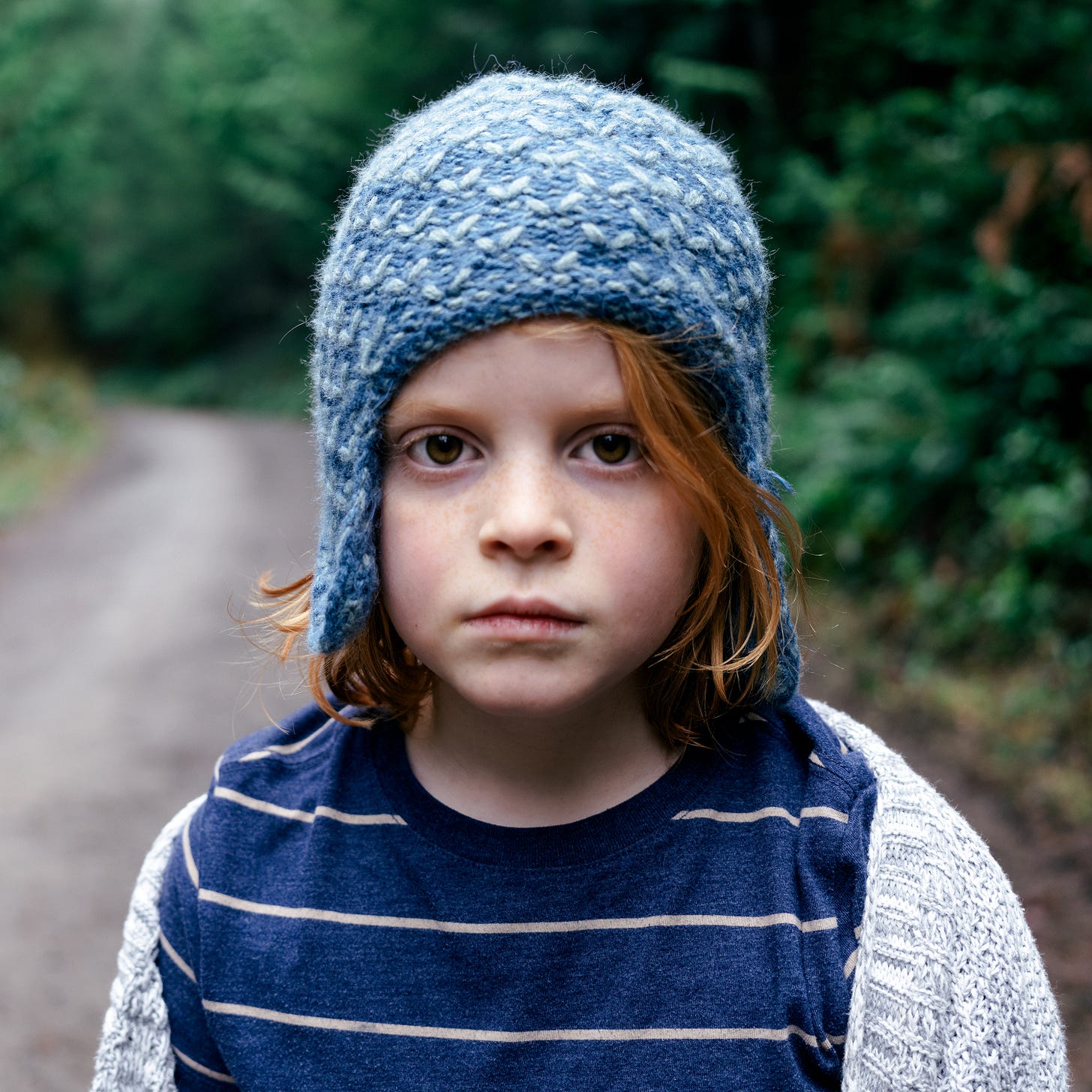We Named Him Wren
A love letter to all fathers, and to my son.
We Named Him Wren.
In a world of sharp elbows,
and confused masculinity,
modernity glows
in artificial, pixelated hues.
Short, short, shorts.
Attention spans collapse.
Ice shelves collapse.
Boys collapse.
We.
All.
Fall.
Down.
The West is on fire.
What’s burning in front of us now,
is all that we see,
all that we ever will know.
Out of place.
Out of time.
South-facing.
Neck crooked.
Migrated desires,
lost in a hazy distance,
bordering close to a new life.
We named you Wren,
small-bodied, sharp-eyed,
a creature of restless song.
The belly-up, belly-full bird,
calling loud,
perched and quivering,
bobbing up and down, down and up.
I recall your birth.
You arrived—reluctantly.
But oh, how you were loved.
We named you Wren.
Not a burden,
but a call to arms.
The King of Birds, the trickster,
not nearly as strong as the eagle,
but wiser by far.
Our homely boy,
buried headfirst under your mother’s wing,
comforted by safety.
You flew highest of all.
Male wrens build their nests,
half-formed, waiting
for their mate
to add final touches
to call it a place of their own.
Patient as you are,
your sister does the rest.
You are precise.
She is not.
Where did all this empathy come from?
Your softness is a wonder.
We named you Wren.
And for such a small bird,
what a noise;
loud and insistent,
your song fills the air.
When we found out we were having a son,
my now-estranged aunt warned,
"Oh, the men in our family.
They don’t father their sons well."
As if I would flee the nest,
as if the weight of the unknown
was my cross to bear.
That was her family, not mine.
Do memories travel in blood?
These paternal ruptures
were an inheritance never sought.
In the summer of renewal,
I drove to the shoreline,
you in tow,
as your mother played with spirits in the forest.
Under a giving tree, she meditated.
While we skimmed flat rocks across the sea.
1—---2—--3—4—5–6-789.
It happened then.
The tears, they flowed.
Remembering the truth
of the fragile boy I once was,
with all the hate I then carried.
Bittersweet me.
To forgive myself.
To forgive him.
To forgive.
I cursed myself.
How had I not known this was the relief?
To be forgiven is to forgive.
Iris Murdoch knew this truth.
It was the greatest gift given.
And, truth be told, I found it hard.
I find it hard.
To be a father.
Was the curse bestowed upon the bloodline — true?
I often remark, as if I had mastered the art,
that parenting is one long sigh.
From the cradle to the grave,
we are in one silent goodbye.
In between those moments.
We must raise empowered daughters.
We must nurture empathetic sons.
This part you made easy.
You always did.
When we connect,
we don’t soar,
we skitter low, wings tucked,
bouncing proudly across the ground,
like your namesake,
flitting beneath Japanese maples,
pecking at fallen seeds,
dancing around squirrels who gather leaves.
We serenade each other
in ways only we understand
and in ways we don’t,
or likely ever will.
We named you Wren, my son,
my love, my boy.
My failings live through you,
my triumphs, my joy.
In the quiet between us,
where words often fail,
this love persists.
I built you this nest,
left it half untidy,
for you to make it your own.
If this poem resonates, share it. I think, perhaps, this is the conversation we should be having with our sons.
And as always, thank you for reading.
— G. K. Allum



This poem resonated with me as a mother, with a daughter. My first husband, her father, wanted the role of the "good parent". That left me with being "the bad mother". A very painful path, because I identified with that role. My second husband planted the idea that "you cannot succeed as a parent". This helped a bit. Yet, it took decades before the relationship between my daughter and me healed. I am 87, she almost 60. The last 6-7 years in particular we have enjoyed a deep and loving relationship. We have both learned a lot. And we were both willing to change. This is how I personally perceive parenthood today. What you refer to as "curse in bloodlines" might be the same as what is known as "ancestral trauma". It is part of the "setting" that the incoming soul encounters. As parents we can only do our very best to parent our child. We love and we guide. The rest is co-creation. When we fall and fail, that is part of it. We are not infallible. We did only sign up for doing our best and be willing to change and grow (both parents AND child). When we fall short of our ideals (and we will at times) we FORGIVE. When our child grows up, I believe it is also valuable to let them teach us. It's a 2-way communication. The parent doesn't always know best. I see everyone as a soul, and each soul has its own wisdom. Ultimately, when this lifetime is over, what counts I think is not how "successful" it was but how much we were able to honour our deepest inner truth which is Love. Maria
A vulnerable poem to share publicly, thank you.